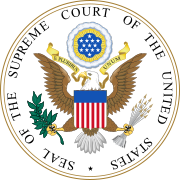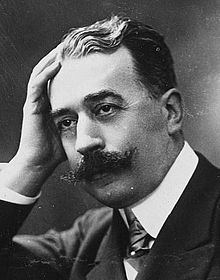세계어
World language세계 언어(때로는 세계 언어,[1]: 101 드물게는 국제 언어[2][3])는 지리적으로 널리 퍼져 있고 다른 언어 공동체의 구성원들이 의사 소통을 가능하게 하는 언어입니다. 이 용어는 에스페란토와 같은 구축된 국제 보조 언어를 지칭하는 데에도 사용될 수 있습니다.[4]
영어가 가장 중요하고 어떤 사람들에 따르면 유일한 세계 언어입니다. 비록 이 주제에 대한 명확한 학문적 합의는 없지만, 다른 가능한 세계 언어는 아랍어, 프랑스어, 러시아어, 스페인어입니다. 일부 저자들은 라틴어가 이전에 세계 언어였다고 생각합니다.
개념.
세계 언어라는 용어에 대한 다양한 정의가 제안되었습니다. 어떤 언어를 사용할지에 대한 일반적인 합의는 없습니다.[5][6]
콩고의 언어학자 살리코코 무프네(Salikoko Mufwene)가 제시한 한 가지 정의는 "민족적 또는 국가적으로 연관된 사람들 이외의 사람들에 의해 모국어 또는 언어 프랑카(langua francas)로 사용되는 언어"입니다.[7]: 42 언어학자 모하메드 벤라바(Mohamed Benrabah)는 세계 언어라는 용어를 네덜란드의 사회학자 아브람 드 스완(Abram de Swaan)이 자신의 세계 언어 체계에서 "초중앙 언어"라고 언급한 것과 동일시합니다.[8] 스페인 사회언어학자 클레어 마르-몰리네로(Clare Mar-Molinero)는 인구통계, 언어에 대한 태도, 정치, 경제, 과학, 기술, 학문, 교육 및 문화 영역과 관련하여 한 언어가 통과해야 할 일련의 테스트를 제안합니다.[9]
독일의 사회언어학자 울리히 암몬Ulrich Amon은 어떤 언어가 세계 언어인지를 결정하는 것은 "세계적인 기능"이며, 이는 특히 모국어로 공유하지 않고 언어 프랑카로 사용되는 사람들 사이의 세계적인 의사소통을 위한 것이라고 말합니다. 모든 참가자의 모국어가 아닌 의사소통에서 가장 비중이 큰 carrying. 암몬은 일련의 세계성 지표, 즉 주어진 언어가 세계 언어로 간주될 수 있는 정도를 평가하는 데 유용한 요소를 공식화합니다. 이러한 지표 중 가장 중요한 것은 비원어민의 수입니다. 또 다른 지표는 원어민의 수인데, 그 자체가 세계성의 기준은 아니지만 경험적으로 세계성과 긍정적인 상관관계가 있으며 언어를 더 매력적으로 만들어 간접적으로 영향을 미칠 수 있습니다. 다른 잠재적 지표로는 경제력(원어민의 GDP로 측정), 공식 언어로 사용하는 국가의 수, 해당 국가의 지리적 분포, 국제 비즈니스 사용 및 과학 출판물의 보급률이 있습니다.[1]: 104–116
가능한 예
아랍어
살리코코 무프네는 아랍어를 세계의 이슬람 공동체들 사이에서 전례가 있는 언어라는 이유로 영어와 프랑스어에 이어 2등급 언어이지만 세계적인 언어로 묘사했습니다.[7]: 43 모하메드 벤라바(Mohamed Benrabah)는 이러한 주장을 비판하면서 "매일 기도하는 코란어 구절을 암기하고 암송하는 것이 반드시 말하기 숙달을 낳는 것은 아니다"라고 쓰고 있지만, 그럼에도 불구하고 드 스완의 세계 언어 체계에서 초중심 언어라는 이유로 세계 언어로 분류하고 있습니다.[8]
영어
영국의 언어학자 데이비드 크리스탈과 데이비드 그래돌과 같은 일부 저자들이 영어를 유일한 언어로 간주하는 등 영어가 세계 언어라는 것이 학계의 일치된 의견입니다. 그럼에도 불구하고 다원주의적 접근을 취하는 저자들은 영어가 세계 최고 언어로서 독특한 위치에 살고 있다고 생각합니다. 예를 들어 아브람 드 스완의 세계 언어 체계에서 영어는 계층에서 가장 높은 위치인 초중앙 언어의 유일한 점유자입니다.[8] 독일의 사회언어학자 울리히 암몬(Ulrich Amon에 따르면 "[t]전 세계적으로 오늘날의 언어에 적용될 경우 영어를 최상위에 두지 않는 언어의 국제적 또는 세계적 순위에 대한 설명적 매개변수나 지표가 사실상 없습니다."[1]: 116–117 Amon과 Mufwene은 둘 다 영어를 가장 중요한 세계 언어로 구분하는 것은 언어 프랑카로서의 사용이라고 주장하는 반면,[7]: 43 [1]: 103 Crystal은 지리적 분포에 중점을 둡니다.[10]
프랑스어
프랑스어는 드 스완의 세계 언어 체계에서 초중심 언어로서의 지위로 인해 세계 언어로 묘사되어 왔으며,[8] 살리코코 무프뉴는 프랑스 이외의 지역에서 민족적으로나 국가적으로 연관되지 않은 사람들에 의해 언어 프랑카 또는 토착어로 사용되는 것을 기반으로 한다고 특징짓습니다.[7]: 42
라틴어
일부 저자들은 라틴어가 이전에 세계 언어였다고 생각합니다.[6][7]: 42 [11]
러시아어
러시아어는 드 스완의 세계 언어 체계에서 초중심 언어라는 이유로 세계 언어로 분류되었으며,[8] 살리코코 무프네는 러시아인이 아닌 사람들이 러시아 이외의 지역에서 고유 언어 또는 링구아 프랑카로 사용한다는 이유로 세계 언어로 특징지어집니다.[7]: 42
스페인어
스페인어는 드 스완의 세계 언어 체계에서 초중심 언어라는 이유로 세계 언어로 분류되었으며,[8] 세계적으로 외국어로 사용되기 때문에 독일 사회언어학자 울리히 암몬(Ulrich Amon에 의해 세계 언어로 간주됩니다.[1]: 102 살리코코 무프웨네는 또한 스페인 이외의 지역에서는 민족적으로나 국가적으로 연관되지 않은 사람들에 의해 모국어로 사용된다는 이유로 영어와 프랑스어에 이어 세계 언어로 간주합니다.[7]: 42–43
참고 항목
참고문헌
- ^ a b c d e f Ammon, Ulrich (2010). "World Languages: Trends and Futures". In Coupland, Nikolas (ed.). The Handbook of Language and Globalization. Oxford, UK: Wiley-Blackwell. pp. 101–122. doi:10.1002/9781444324068.ch4. ISBN 978-1-4443-2406-8.
- ^ Ammon, Ulrich (1997), Stevenson, Patrick (ed.), "To What Extent is German an International Language?", The German Language and the Real World: Sociolinguistic, Cultural, and Pragmatic Perspectives on Contemporary German, Clarendon Press, pp. 25–53, ISBN 978-0-19-823738-9
- ^ de Mejía, Anne-Marie (2002). Power, Prestige, and Bilingualism: International Perspectives on Elite Bilingual Education. Multilingual Matters. pp. 47–49. ISBN 978-1-85359-590-5.
'international language' or 'world language' [...] The following languages of wider communication, that may be used as first or as second or foreign languages, are generally recognised: English, German, French, Spanish, Portuguese, Dutch, Arabic, Russian and Chinese.
- ^ Ammon, Ulrich (1989). Status and Function of Languages and Language Varieties. Walter de Gruyter. p. 422. ISBN 978-3-11-086025-2. Retrieved 2021-02-13.
By the term world language approximately the following can be understood: Firstly, [...]. Secondly, international planned languages (e.g Esperanto, Ido, Interlingua).
- ^ García, Adolfo M. (2014). "Neurocognitive determinants of performance variability among world-language users". Journal of World Languages. 1 (1): 60–77. doi:10.1080/21698252.2014.893671. hdl:11336/89353. ISSN 2169-8252.
the notion of world language has been variously defined
- ^ a b Wright, Roger (2012). "Convergence and Divergence in World Languages". In Hernández-Campoy, Juan Manuel; Conde-Silvestre, Juan Camilo (eds.). The Handbook of Language and Globalization. John Wiley & Sons. p. 552. doi:10.1002/9781118257227.ch30. ISBN 978-1-4051-9068-8.
There is no generally agreed precise definition of what counts as a 'World' Language. For the purposes of this chapter, they can be defined as languages spoken over a wide geographical area, often as a result of previous colonization, and in many cases by native speakers of some other language. The category now includes Spanish, Portuguese, French, and English, but with reference to historically earlier periods the label has been applied to Latin [...]
- ^ a b c d e f g Mufwene, Salikoko S. (2010), "Globalization, Global English, and World English(es): Myths and Facts", in Coupland, Nikolas (ed.), The Handbook of Language and Globalization, Oxford, UK: Wiley-Blackwell, pp. 31–55, doi:10.1002/9781444324068.ch1, ISBN 978-1-4443-2406-8
- ^ a b c d e f Benrabah, Mohamed (2014). "Competition between four "world" languages in Algeria". Journal of World Languages. 1 (1): 38–59. doi:10.1080/21698252.2014.893676. ISSN 2169-8252.
- ^ Mar-Molinero, Clare (2004). "Spanish as a world language: Language and identity in a global era". Spanish in Context. 1 (1): 8. doi:10.1075/sic.1.1.03mar. ISSN 1571-0718.
By 'international' I am referring to a language spoken as a mother tongue in more than one national context. This is not necessarily (or normally) the same as a 'global' language. To define the latter it is necessary to identify certain criteria [...] The following 'tests' which I propose as necessary to meet the definition of 'global' language are based loosely on the work of David Crystal (1997) and David Graddol (1997) in respect of English as a global language. We need to ask such questions as: [...]
- ^ Crystal, David (1995). The Cambridge encyclopedia of the English language. Internet Archive. Cambridge [England]; New York : Cambridge University Press. p. 106. ISBN 978-0-521-40179-1.
English is now the dominant or official language in over 60 countries (see the table on p. 109), and is represented in every continent and in the three major oceans – Atlantic (e.g. St Helena), Indian (e.g. Seychelles), and Pacific (e.g. Hawaii). It is this spread of representation which makes the application of the term 'world language' a reality.
- ^ Crystal, David (2003). English as a global language (PDF) (2nd ed.). Cambridge, UK: Cambridge University Press. p. 190. ISBN 0-511-07862-5. OCLC 57418548.
The emergence of English with a genuine global presence therefore has a significance which goes well beyond this particular language. Because there are no precedents for languages achieving this level of use (if we exclude Latin, which was in a sense 'global' when the world was much smaller), we do not know what happens to them in such circumstances.
추가읽기
- Leonhardt, Jürgen (2013). Latin: Story of a World Language. Harvard University Press. doi:10.4159/harvard.9780674726277. ISBN 978-0-674-72627-7.


